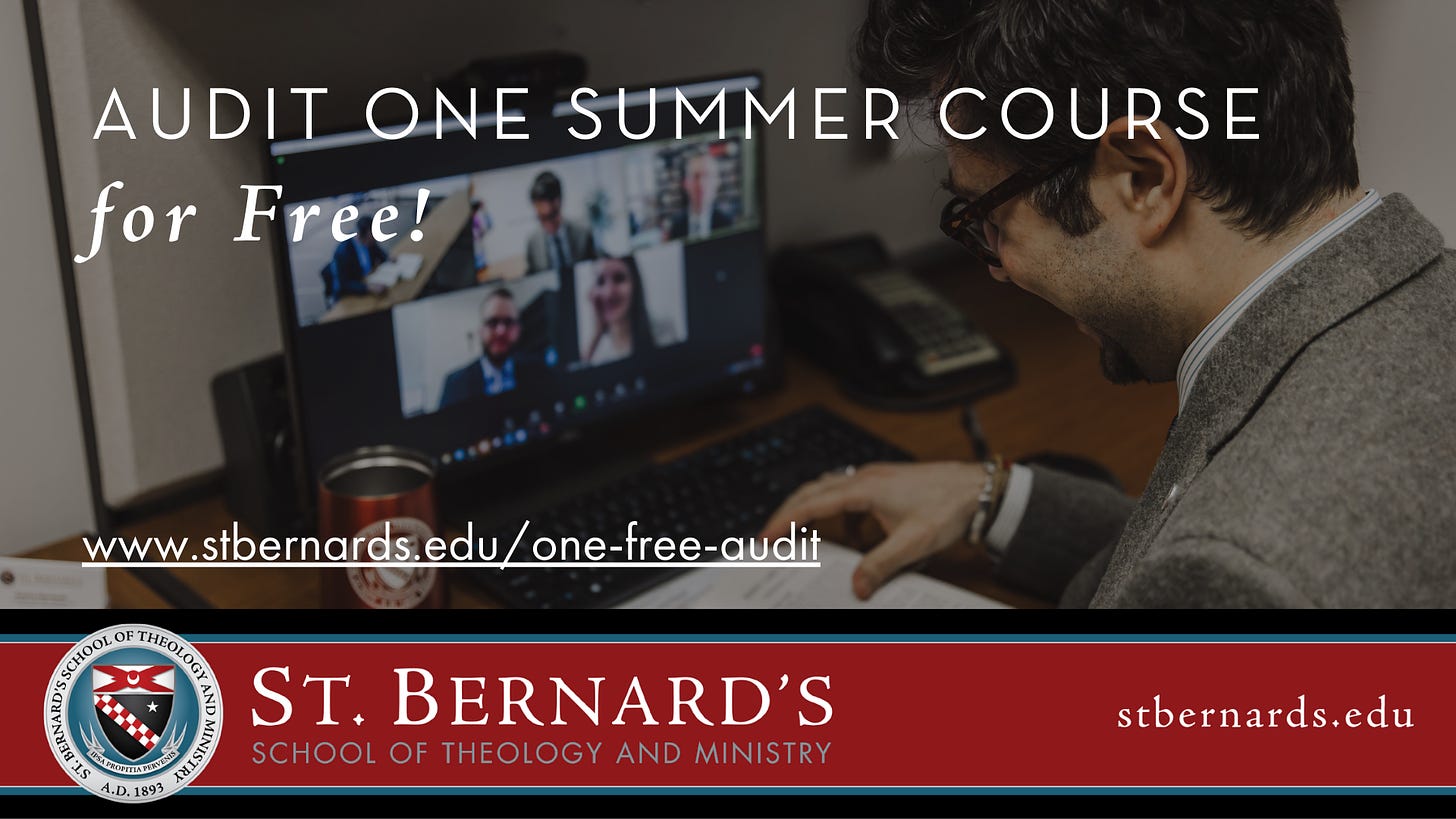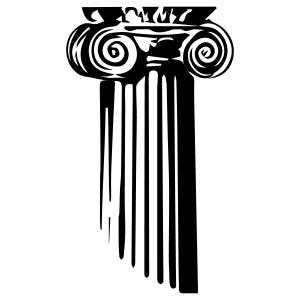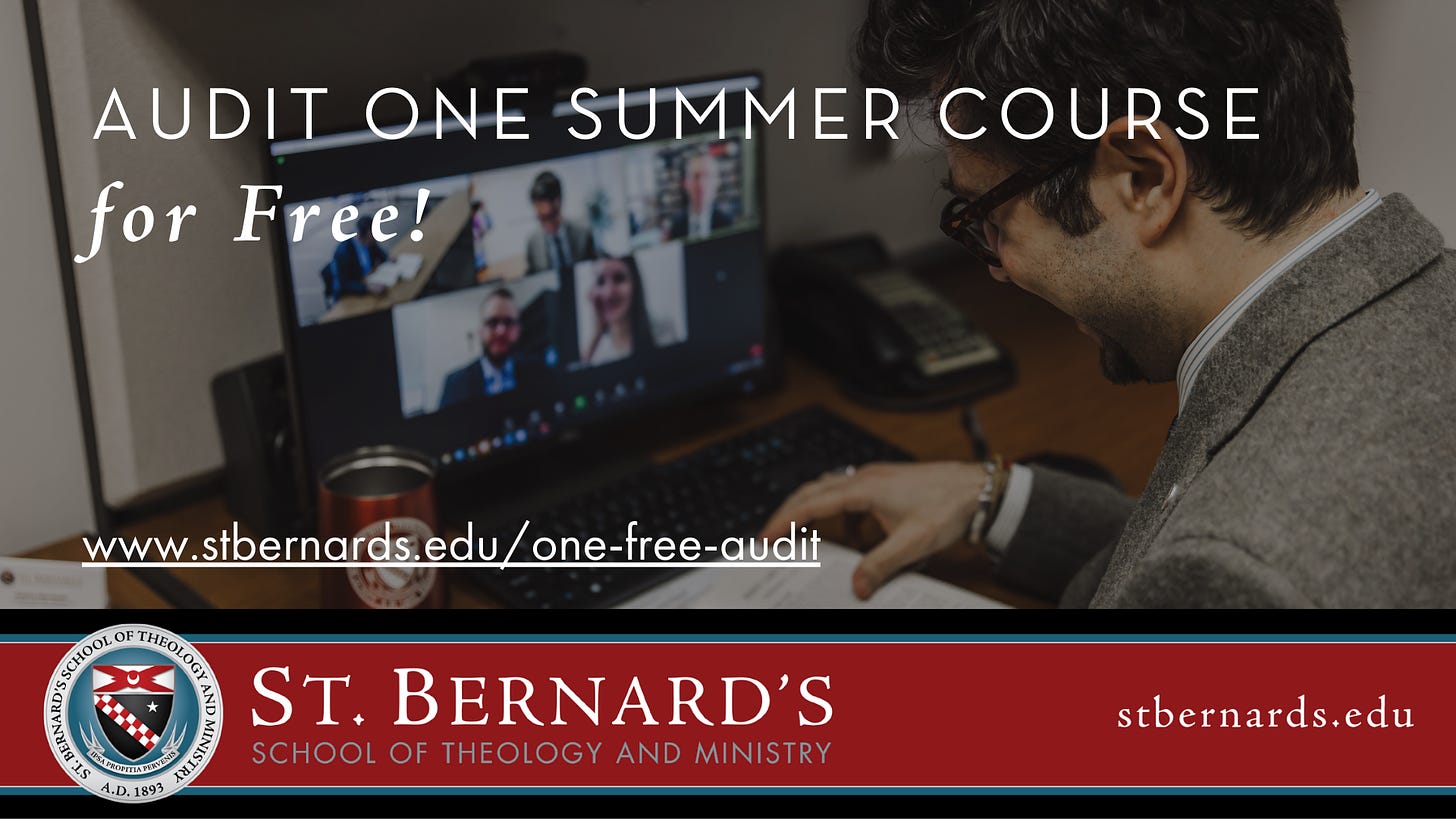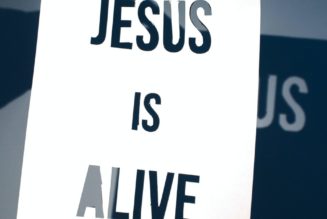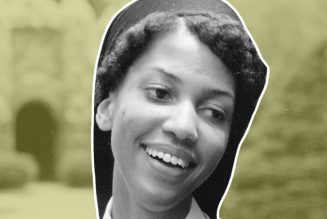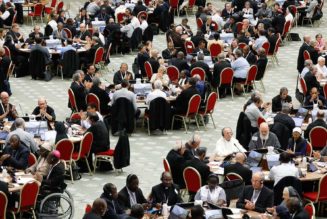Happy Friday friends,
I hope it’s been a good week for you all. I don’t mind telling you, I’m looking forward to a bit of a weekend myself.
We have some family in town visiting, my daughter’s godparents in fact, and while they have been busy spoiling her rotten these last few days, I am hoping to be able to show them something of a good time. They are over from Europe, so assuming we can find a babysitter, I’m going to take them to see some real American culture: Medieval Times.
You think I’m being sarcastic, but I am deadly serious. If we manage to go, I’ll explain why MT is the best of America next week, when the experience is fresh in my mind.
One of the first truly vivid memories I have is of going to The Times for my birthday as, I think, a six- or seven-year-old in Chicago. It was the most amazing thing I’d ever seen. And I wouldn’t hate some childhood nostalgia today.
My morning began with a trip to the dermatologist, one of a series of medical interviews my wife has scheduled for me since I turned “old” last month and my potential for longevity became her new favorite background conversation for the house.
That I am, in fact, old, was borne upon me while I was there. As I filled in the obligatory 30-page questionnaire on a clipboard (which apparently begins every medical encounter in the United States), I looked around the room and noticed all the other patients looked a lot like, well, my dad.
When I did get in to see the doctor, she immediately consulted my paperwork and pronounced me “a baby,” which was initially refreshing to hear — when I was in my 30s, I felt like people used to say it to me all the time, but then suddenly stopped.
It then dawned on me that I’m only a baby next to all those guys in the waiting room who look like my dad, and who are now my demographic cohort — I am, at best, at the young end of the old man’s club.
By the way, I don’t know if you’ve been subjected to such a thing yourself but, being of a fairish complexion and with a lot of skin cancer in the family, a regular “full body look,” as the doctor called it, is going to be part of my routine from here on out. And it’s not fun.
Nothing dents one’s vanity like being ordered to strip buck neked and having every inch of skin examined under a magnifying glass while some teenage candy striper stands in watchful attendance “for your comfort.” You realize quickly that your physique has become an object of, at best, morbid curiosity, at worst medical interest.
Such is life, I suppose. Memento mori. But I could do with seeing some guys with swords and armor beat seven bells out of each other tonight.
In the meantime, here’s the news.
The News
Pope Francis accepted this morning the resignation of the head of Australia’s personal ordinariate for groups of former Anglicans.
Although Reid had only been in his role for less than four years, last year the ordinariate underwent an apostolic visitation led by Bishop Steven Lopes, Ordinary of the North American Personal Ordinariate of the Chair of St. Peter.
The visitation looked at the structural sustainability of the ordinariate, including its small size, shortfalls in funds, and the advanced age of some clergy. Reid’s resignation follows persistent rumors that the Australian ordinariate is going to be suppressed by the Holy See.
In his Easter appeal, Reid acknowledged that the visitation had been “a wake-up call” but sought to tamp down speculation, saying that though he didn’t know the results of the visitation’s report yet, he had been assured the ordinariate would carry on.
Read all about what’s happening now, and what’s happening next, right here.
—
Another surprise resignation this week came yesterday from the Archbishop of Strasbourg, who quit his post fully a decade ahead of schedule, again with no real reason for it given.
Archbishop Luc Ravel has also faced an apostolic visitation in recent months.
“The penal implications of a certain number of cases fall within the jurisdiction of the judiciary,” the archbishop added, somewhat enigmatically.
The upshot seems to be that the archbishop has become widely unpopular among his clergy for being something of an authoritarian but, in the archbishop’s view, he did what he had to do to act in cases of what he seems to be hinting could include clerical abuse.
You can read the whole story here, and suspect we will learn more in the next few days.
—
A monastery complex and UNESCO world heritage site in Kyiv has been at the center of a growing standoff in church-state relations in Ukraine.
But, as our Ukrainian correspondent Anatolii Babynskyi reported this week, the situation has been complicated further by the autocephalous Orthodox Church of Ukraine (or OCU, recognized by Constantinople, but not Moscow) moving in behind the UOC-MP and emerging as a new government-preferred Church.
As Anatolii reports, feeling among other Christian leaders is not very sympathetic to the Russian-affiliated UOC, and the general sense is that they have enjoyed the status and perks of a quasi state-sponsored Church for years. But, if no one is especially sad to see the UOC-MP lose its privileged status, feelings are a lot more mixed about the government appearing to install the OCU in its place, instead of creating a level playing field for all the country’s Churches.
This is very interesting, and it is important. Please read it.
—
Pope Francis issued another motu proprio this week, this time changing the norms governing synods for the Eastern Catholic Churches.
What does that mean? What are these “synods of bishops?” Does this have something to do with the synod on synodality? And who was asking for this change, anyway?
—
The Vatican’s supreme court has rejected an appeal to re-examine a controversial land deal in the Archeparchy of Ernakulam-Angamaly, the pre-eminent see of the Syro-Malabar Catholic Church.
Local clergy are not happy about the land deal, and not happy about the decision. They accuse the archeparchy of selling the land for far less than its estimated worth, and of mismanaging the local Church’s assets at a time when the archeparchy was already struggling to pay back a large bank loan.
And they have a tendency to make their discontent felt.
—
Archbishop Robert Francis Prevost assumed leadership last week of the Vatican’s Dicastery for Bishops, and he’s now responsible for episcopal appointments worldwide, and for managing investigations into bishops under the norms of Vos estis lux mundi.
But what kind of bishops will he be putting forward for papal approval, and what other issues will he have to wrestle with at his new office in Rome? I took a look in an analysis this week.
You can read the whole thing here.
—
Some of you may remember a fascinating feature Luke Coppen wrote the other week on the Knanaya community and its practice of endogamy — the strict rules on marriage within the community to maintain membership — and the Church’s accommodations for them.
Well, the situation developed this week, when the pastor of a parish issued a permission for a man to marry a woman from outside the community and remain a member. Indian media have described the granting of permission as historic, and said it could signal the death knell for the community’s marriage rules.
And if you haven’t already, you should read Luke’s original feature, because it really is the most interesting thing I have read in months.
This Pillar Post is brought to you by St. Bernard’s School of Theology and Ministry.
One Free Summer Audit! Take one online course for free ($375 value) on topics like the Legacy and Thought of Joseph Ratzinger/Benedict XVI; Biblical Studies; the Song of Songs; and American Saints and Blesseds. We hope you’ll join us! Application deadline for Summer Session I is April 28th. See full list of courses here.
A Roman holiday
Bishop Guerino Di Tora is not a prelate who often makes the news, but he did yesterday. The vicar of the archpriest of the Basilica of St. John Lateran in Rome had to issue a statement of “profound regret” after a group of some 50 Anglican clergy, led by an Anglican bishop, was allowed to simulate the Eucharist on the altar of the church of the pope’s diocesan cathedra earlier this week.
Oops.
As far as ecumenical overreach goes, this is about as egregious as it gets.
It isn’t a question of being nice to our Christian brethren; there are lots of ways one could welcome a group of Anglicans on tour in Rome and show them a good time without allowing them to perform an invalid version of the sacrament in the place where Pope Francis has his episcopal throne.
It is, I need not explain, absolutely a canonical no-no for the clergy of an ecclesiastical community not in communion with the see of Rome, one whose ordinations the Church judges to be “utterly null and totally void,” to be given use of the main altar (or any altar for that matter) in a Catholic basilica.
Quite apart from a deliberate simulation of the sacrament amounting to the profane use of a sacred space (however innocently intended), it is also likely to cause what the law discreetly calls “wonderment” among the faithful who witness it.
According to the statement released by Di Tora, he “deeply” regretted “what happened last Tuesday.” The “unfortunate episode” was, apparently, caused by a “breakdown in communication” with the visiting group.
The matter was further complicated — and made more publicly awkward — by the fact that the group was headed by Bishop Jonathan Baker of Fulham, who led the… service(?) while fully vested as a bishop.

Baker was, as many were quick to note, elevated to the rank of bishop by the former Archbishop of Canterbury, Rowan Williams, despite being a known member of the Freemasons.
For those of you wondering, being a Freemason is an even bigger issue for the Catholic Church than being an Anglican, and even Williams, despite promoting Baker to bishop, had previously said Masonry was incompatible with Christianity.
Now, at this point, I should say I sympathize with Di Tora. Having asked around a fair bit, both in the U.K. and Rome, the best I have gleaned is that it seems likely the Anglican group presented itself to the basilica as a group of clergy on pilgrimage from the “Church of England,” rather than “Anglican Communion,” terminology certainly open to misunderstanding to non-native English speakers.
They might have even described themselves as “Anglo-Catholics,” leaving Italo-Catholics to conclude they belonged to the fully Catholic ordinariate for ex-Anglicans, rather than to the wing of the Anglican Communion which happens to like incense and nice vestments.
And let’s be honest, Di Tora would not be the first person who couldn’t tell the difference between an English bishop and a Freemason.
Though as I asked around about Baker, it got even… stranger. It turns out that before he was made an Anglican bishop in 2011, he had been a key figure in the talks between Church of England clergy and the then Congregation for the Doctrine of the Faith which led to the promulgation of Benedict XVI’s 2009 apostolic constitution Anglicanorum coetibus.
I’ve had, I should stress, no indication that his subsequent elevation to bishop had any relation to Baker’s apparently last-minute decision not to become a member of the Ordinariate he helped to clear the way for. I’m told his canonically irregular domestic situation was more pressing of an issue — he is divorced and remarried.
One English friend I spoke to did note that it was especially ironic to see Baker, of all people, turn his back to the pope’s throne and attempt to invalidly confect a sacrament he would actually be prohibited from receiving in the Catholic Church.
I’m sure there have been lessons learned at the Lateran. And my heart does go out to Bishop Di Tore.
Interview on autopilot
As I mentioned once before in this newsletter, I am something of a casual Formula 1 fan, so when I read this week that the greatest ever racing driver Michael Schumacher had given an interview, I opened it with intense interest.
Schumacher, for those of you who don’t know, was the driver who won seven world championships, five of them in a row for Ferrari. After his retirement, in 2013 he had a horrific skiing accident in which he smashed his head on a rock with such force that he was put in a medically induced coma and diagnosed with “traumatic brain injuries.”
Since then, word of Schumacher’s status has been scarce. His family has intensely guarded his privacy. In 2014, it was announced he was going home for “rehabilitation.” It’s been reported he’s paralyzed and cannot speak, though he’s “conscious,” but the extent of his injuries, and the impairments they have left him with, remain largely guessed at.
There has been no public appearance or word from him for a decade, so you can imagine the excitement when the German magazine Die Aktuelle ran a cover boasting an interview with him in which he frankly discussed his accident, rehab, and the effects on his family.
Except, it turned out, he hadn’t. It turned out the magazine had run a conversation with an AI chatbot talking (very convincingly) as Schumacher. His family is, understandably, furious and has announced they are going to sue, while Die Aktuelle seems to be trying to play the whole thing off as a kind of journalistic performance art, a cautionary tale about fake news and AI.
I remain convinced that if I live to see armageddon, it won’t be via nuclear war with Russia, or WWIII vs the ChiComs, it’ll be because some version of Skynet we’ve created to do college kids’ homework and churn out deepfake pornography wakes up one morning, runs an algorithm, and decides us fleshbots are a messy remainder in the equation.
But that’s not what interests me, especially, about the Schumacher “interview.”
What I find fascinating is that, despite Schumacher being in a coma for we don’t know how many months, if not years, and still at least unable to move or speak, no one questions that he is very much alive and still Michael bloody Schumacher, the F1 GOAT (just pipe down you Hamilton fans, Sir Lewis is great, too). And no one questions that his family has every right and reason to do whatever they can to keep him alive and help him make whatever incremental moves he can towards some sort of recovery.
But I cannot help but note that if he’d only been, say, Mike from Moosejaw, he’d never have made it out of the hospital alive. His doctors would have, I’d bet, euthanized him without a second thought and browbeat the family (with the support of the courts) if they dared suggest that their husband and father still had a life worth living.
It’s easy to chalk the difference up to Schumacher being famous, and cluck and sigh about how celebrity in our society confers a special kind of Übermensch status, but I don’t think it’s exactly that simple.
It seems to me that the reason Schumacher’s Swiss doctors (who as a class tend to be pretty quick with a lethal dose) gave him their best efforts, and the reason his family’s commitment to his continued life goes unquestioned, isn’t just because he’s famous, it’s because he was such an international figure that people felt like they knew him.
I didn’t do a doubletake at the chance to read an “interview” with Schumacher just because he’s a celebrity, I did want to know what a guy who I knew prized his privacy and chose his words carefully (even before the accident), but was so publicly known for his drive and will, had to say about his last 10 years.
This is by way of saying, as we fight the cultural avalanche in favor of killing off the weak, the injured, the elderly, and the infirm, we can do it best by treasuring the humanity of every person we know in such circumstances. And by celebrating what they mean to us, and what their life is worth, as loudly as we can.
See you next week,
Ed. Condon
Editor
The Pillar
This Pillar Post is brought to you by St. Bernard’s School of Theology and Ministry.
One Free Summer Audit! Take one online course for free ($375 value) on topics like the Legacy and Thought of Joseph Ratzinger/Benedict XVI; Biblical Studies; the Song of Songs; and American Saints and Blesseds. We hope you’ll join us! Application deadline for Summer Session I is April 28th. See full list of courses here.
Comments 17
Services Marketplace – Listings, Bookings & Reviews


